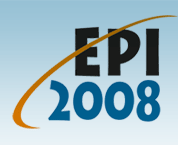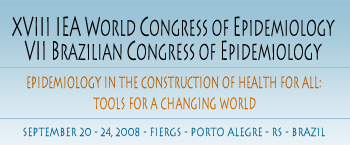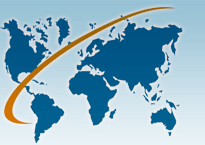Useful Information
The
City
PORTO ALEGRE is a young and dynamic metropolis, capital of Brazil’s
southernmost state, Rio Grande do Sul. With population of approximately
1.3 million, it is an important economic and cultural center. The "porto
alegrenses" pride themselves in their quality of life, associated
not only with vibrant cultural activity, but also with an intimate and
respectful relation with nature. City streets are tree-lined, and the
city has a long coastline on the Guaíba estuary. Its topography
is punctuated by 40 hills. The porto alegrense’s way of life includes
many parks and other green areas.
Climate - During spring, temperatures range from 15ºC
(59º F) to 30º C (86º F) sunset at 18h45;
Banks - Are open from Monday to Friday from 10:00-16:00.
Currency
& Credit Cards
The Brazilian monetary unit is the real R$ (plural= reais). There are
100 centavos to 1 real. The US dollar is by far the most widely accepted
foreign currency in Brazil. There is also a network of cash points at
which foreign cash cards can be used, and all major credit cards are accepted
in Brazil. Traveller's checks and foreign bills may be exchanged according
to daily rates at the airport, banks and currency exchange stores.
Electric
Current
In Porto Alegre, the current is 110 volts (60 cycles), although many of
the larger hotels also offer 220 volts. In case of doubt, check with the
front desk. Transformers to boost the current from 110 to 220 volts are
available in most good electrical supply stores. For most electric appliances,
Brazil uses a two-round-pinned socket.
Food & Drink
Brazil’s cuisine is the product of tradition. Each region of Brazil
— depending on its indigenous culture, which European group colonized
it, proximity to rivers or the ocean, annual rain and soil conditions—
has developed its own very diverse cuisine. If there is one dish that
typifies Brazilian cooking it is probably feijoada. It is a complex bean
dish prepared with air-dried beef, smoked sausage, pork, garlic, and pepper.
It is customary to fill a plate with white rice and spoon feijoada over
the top, and farofa (cassava flour) to thicken the sauce. The whole dish
is garnished with spring greens and slices of orange. The typical dish
of Rio Grande do Sul is churrasco, a barbecue of meats, mainly beef, grilled
over charcoal using skewers. It is popular throughout Brazil and increasingly
appreciated in different countries around the globe.
The national alcoholic beverage is cachaça, made from crushed sugar
cane, which is the basis of the popular caipirinha. Cachaça is
also used for batidas - a mix of cachaça and fresh fruit juices.
A wide variety of fruit juices are frequent meal companions. Brazil’s
own soft drink is calledGuaraná, after the berry upon which it
is based. As for the coffee, no disappointment here - Brazil is the world’s
largest coffee producer. The typical beverage of Rio Grande do Sul is
chimarrão, a hot herbal tea drank from a gourd using a metal straw,
and passed among friends.
Internet
Most hotels in Brazil offer web access, and cyber cafés can be
found in many of the main shopping centers.
Telephone
Service and Mobile Phone Coverage
Brazil has a well-developed telephone network, and it is relatively simple
to direct dial to anywhere in Brazil or internationally. Brazil’s
country code is 55, the Porto Alegre area code 51. To stimulate competition,
long distance calls must add the operator number. For a national call,
after obtaining access, dial the operator code, then the area code and
number (e.g. to place a call to the Epidemiology Program in Pelotas, dial
0 14 53 3271 2442, where 0 is for access, 14 is the operator code and
53 is the area code; to place a call to the International Journal of Epidemiology,
dial 00 14 44 117 928 7370, where 00 is the international access code,
14 the operator code, and 44 the country code.)
Mobile phone coverage
- Visitors should check with service providers as to exactly
what coverage to expect because this does vary from state to state and
from one service provider to another - as does the cost. If your mobile
phone is not compatible and thus will not work in Brazil, handsets can
be rented and arranged to be delivered to your hotel or picked up at the
airport.
Time
Zone
UTC/GMT Offset: Standard time zone UTC/GMT – 3 hours.
Tipping
Tips are usually 10% of the bill. Nearly all hotels automatically add
a service charge to the bill, usually 10%. Most bars and restaurants also
automatically add 10% or more to the total of the bill, but are obliged
to specify the amount. If service is not included, it will be stated at
the bottom of the bill: “Serviço não incluso.”
Brazilians don't normally tip taxi drivers, although they may round up
the total.
Travel
Insurance
A travel insurance policy to cover theft, loss and medical problems is
recommended.
Visa
As the Brazilian Foreign Office bases its actions on reciprocity, visitors
from many foreign countries will require a visa. Requesting the visa several
weeks before the Congress should minimize inconvenience. Appication should
be made to nearest Brazilian Embassy or Consulate. More information can
be provided by the travel agency.
•
Brazilian Mission
to the European Community
• Brazilian
Embassies
|



